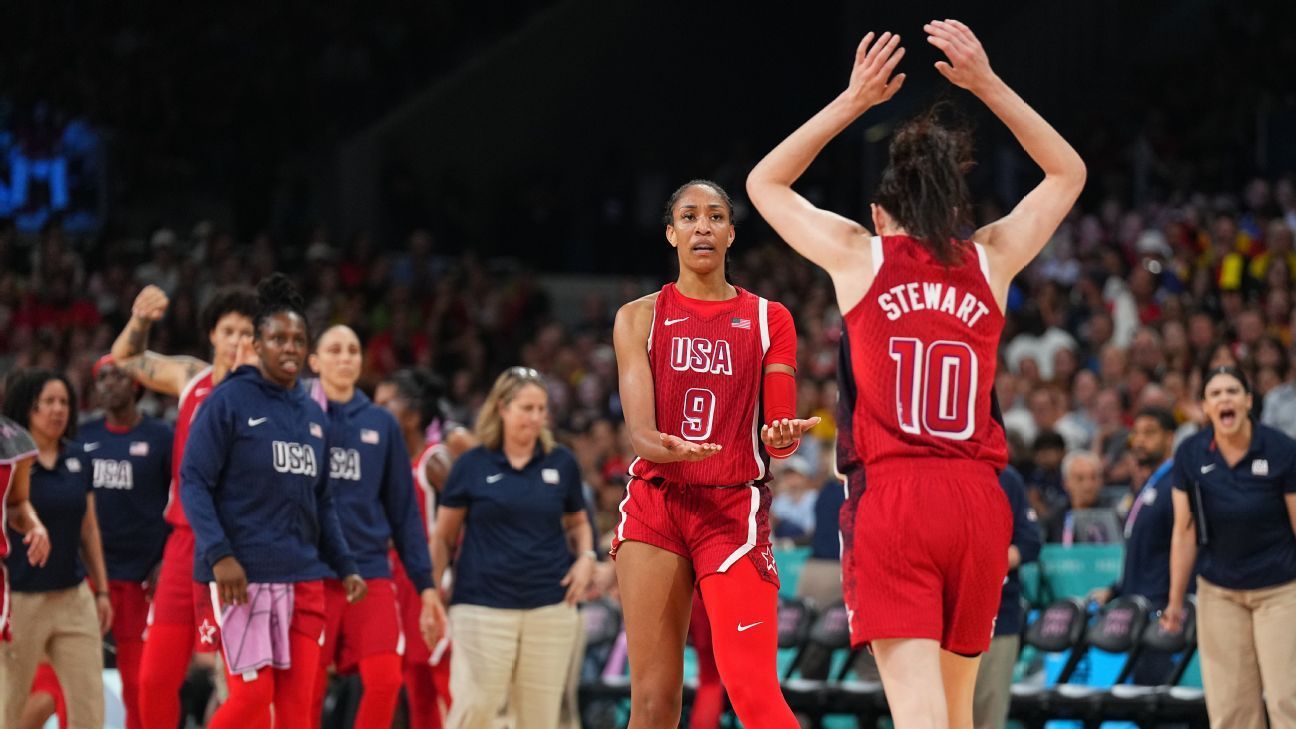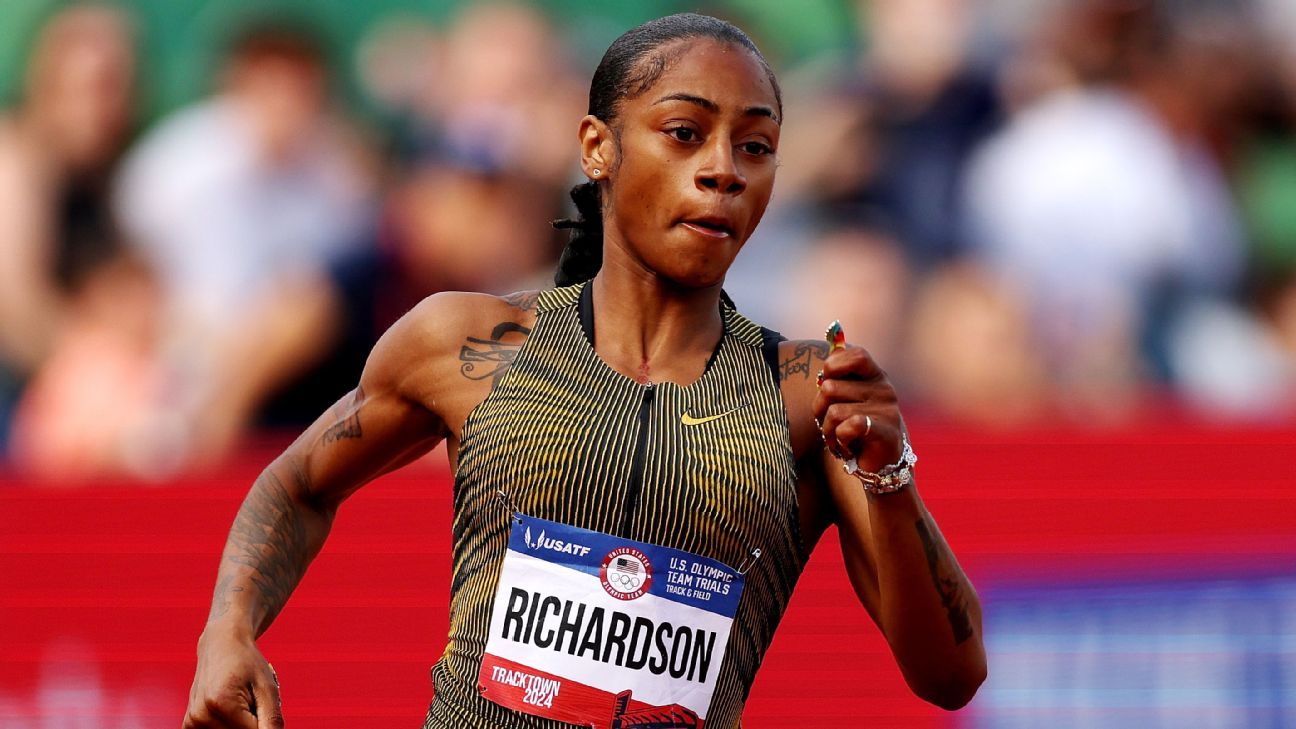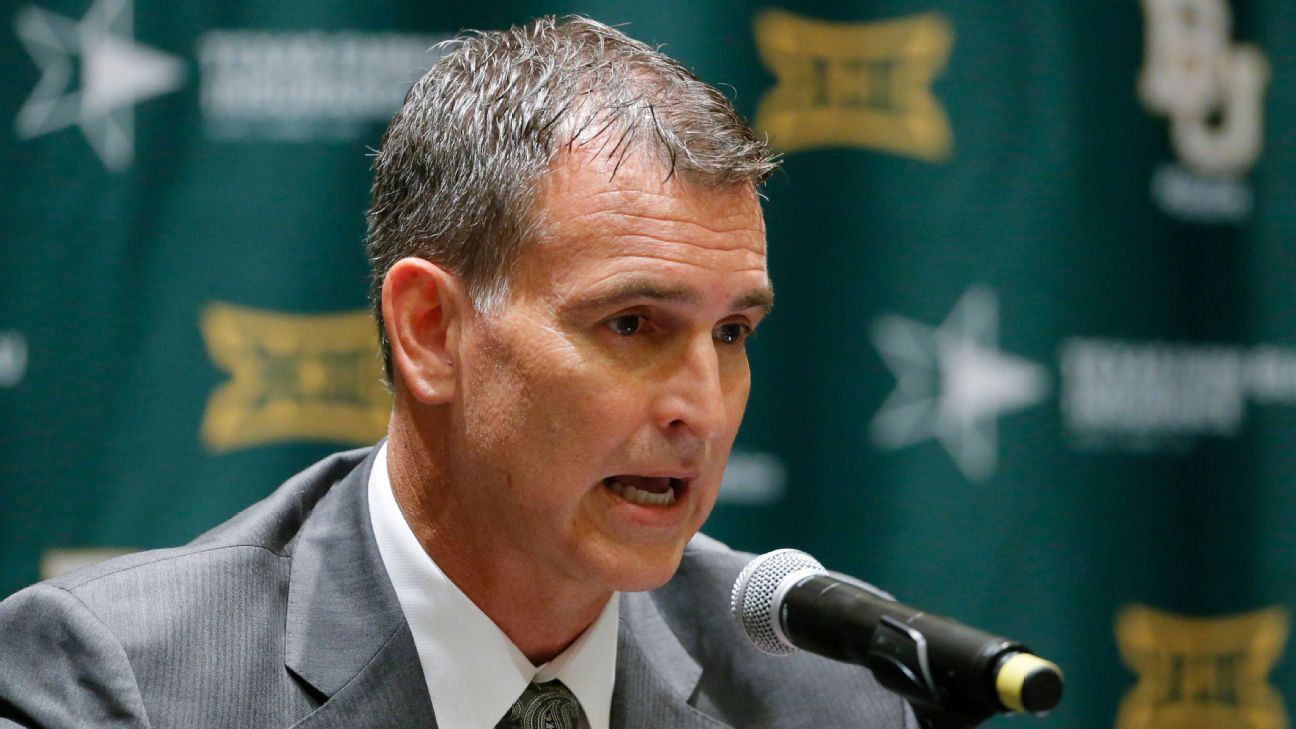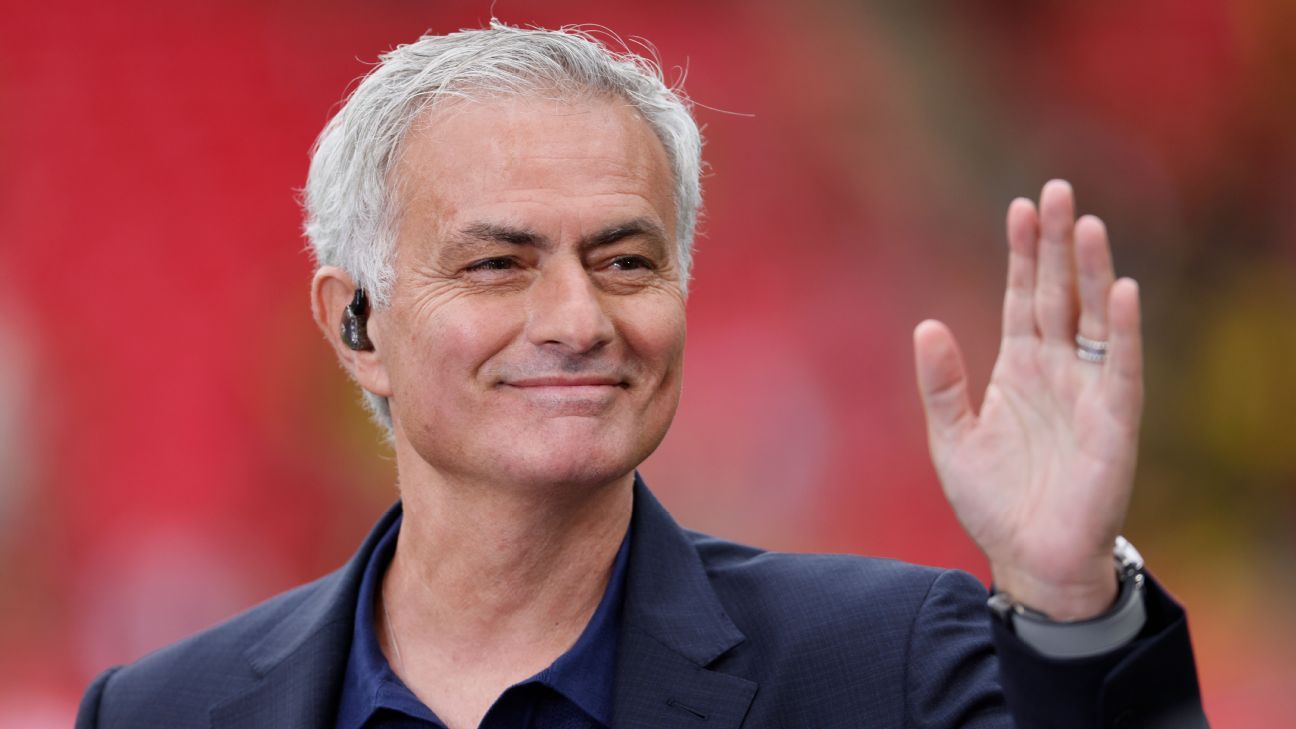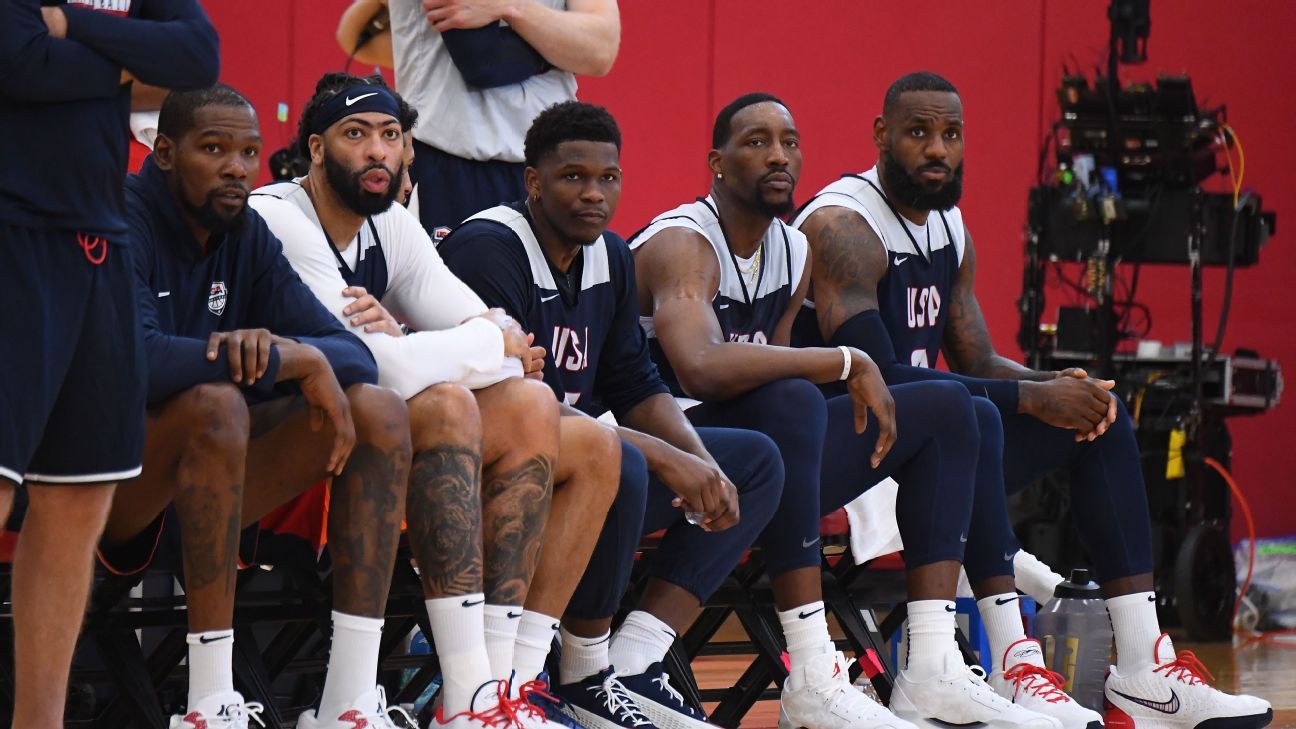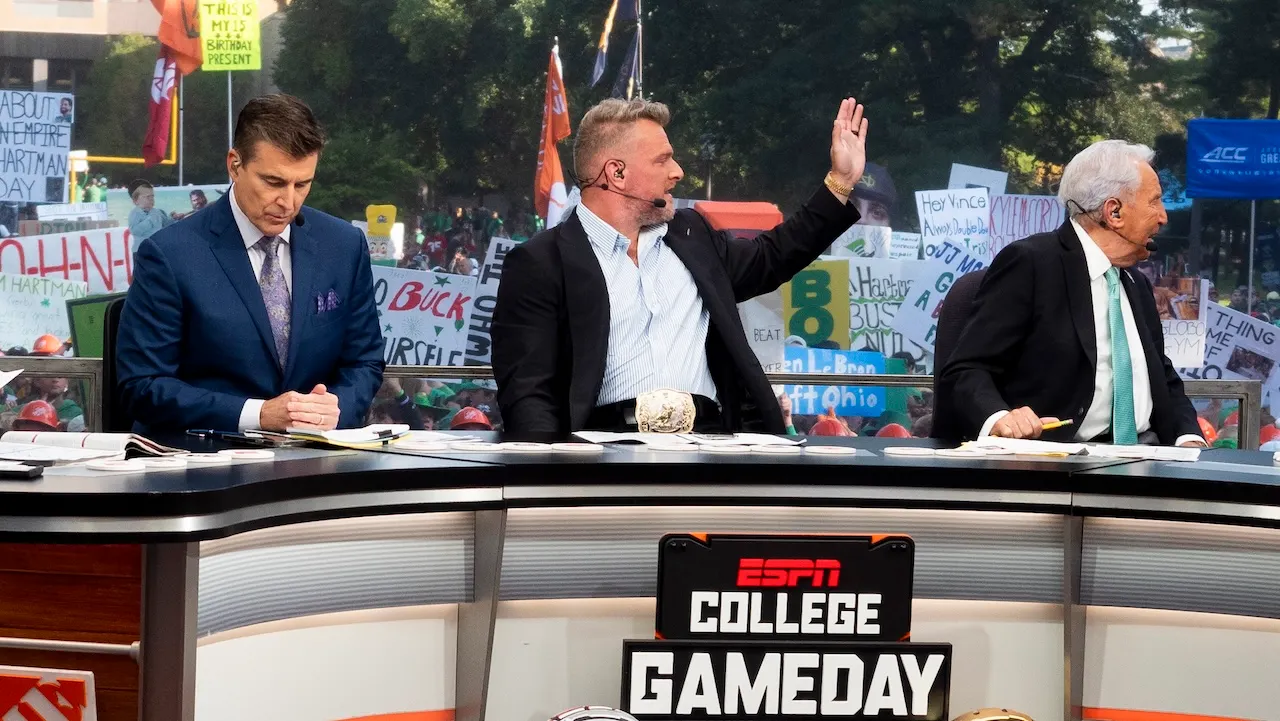Two global rivals will meet again on Friday when the U.S. women's basketball team takes on the Australian Opals with a spot in the gold medal game at the 2024 Paris Games on the line.
Team USA, which is riding a 59-game Olympic winning streak, advanced to the semifinals with an 88-74 win over Nigeria on Wednesday. After an upset loss to Nigeria in their Olympic opener, the Opals have now reeled off three straight wins, including Wednesday's 85-67 quarterfinal win over Serbia.
While the American women have been the poster children for basketball around the world, winning seven consecutive Olympic gold medals and nine overall, Australia has been a historic powerhouse alongside them. The Opals have won medals at five of the past seven Summer Games, taking home three silvers and two bronzes, though their semifinal run in Paris marks the first time they have advanced past the quarterfinals since the 2012 London Games.
2012 was also the last time the legendary Lauren Jackson suited up in green and gold on the Olympic stage — until now. While Team USA has 42-year-old Diana Taurasi, a six-time Olympian, the Opals have 43-year-old Jackson, who is competing in her fifth Games and first in 12 years. Jackson has always won medals in competition, and while she has seen little action so far in France, she has a chance to continue that streak this weekend.
Australia, which has six active WNBA players, has plenty of momentum, but the Opals are 0-20 all-time against the U.S. senior team, including 0-8 in Olympic competition. During the five Games in which they have medaled, Australia has lost to the U.S. in either the semifinals or the gold medal contest. The last time the teams met was in 2020, when the Americans prevailed 79-55.
ESPN's Alexa Philippou and Kevin Pelton break down some of the most pressing questions heading into the matchup.
1:05
Breanna Stewart credits Jackie Young for boosting Team USA
Breanna Stewart speaks with Brian Windhorst after Team USA's 14-point win over Nigeria to advance to the semifinals.
The U.S. team changed its starting five against Nigeria, with Jackie Young replacing Diana Taurasi. Did this change solve the problems in the backcourt?
Felipe: Starting Young instead of Taurasi (who last came off the bench at the 2004 Olympics) was the right call. With 15 points against Nigeria, Young appears to be carving out a role as Team USA’s third scorer behind A’ja Wilson and Breanna Stewart (in fact, Young is the only American player averaging double figures at 10.3 points per game). Young, one of three Las Vegas Aces players in the starting five, showed off her 3-point shot earlier against Germany, going 5-for-8. But while she didn’t score from 3-point range on Wednesday, it was her ability to get down low and hit from midrange, along with her trademark backcourt defense, that stood out the most. It took the U.S. until midway through the second quarter to hit the gas against Nigeria, but Young’s aggression and energy on both ends should continue to pay off. And Taurasi seemed to do well coming off the bench, where she stepped up as a facilitator with four assists.
Pelton: I'd love to see starting point guard Chelsea Gray develop into a scoring threat. She missed all three of her shot attempts in the quarterfinals, dropping Gray to 1-for-13 so far during the Olympics. Surprisingly, the U.S. outscored Nigeria by just two points in Gray's 17:27, while the other four starters all had a plus-minus of plus-17 or better while on the court.
Still, as I mentioned in our last roundtable, the U.S. women can overcome a non-scoring player in the starting five as long as she brings something more to the table. And Gray is on point with her playmaking ability, as she has now totaled 22 assists against just three turnovers. So I don't think coach Cheryl Reeve needs to make any more changes.
What problems do the Australians pose and what could make them a difficult opponent?
Felipe: WNBA fans will be very familiar with this Opals team, which includes Seattle Storm’s Ezi Magbegor and Sami Whitcomb, Minnesota Lynx’s Alanna Smith, Los Angeles Sparks’ Stephanie Talbot, Washington Mystics’ Jade Melbourne and Indiana Fever’s Kristy Wallace, with New York Liberty coach Sandy Brondello at the helm. Not only do the Opals have the talent to compete against Team USA, but they also have drive and determination after their disappointing start to the Olympics. Brondello has been pleased with her team’s poise and determination over the past week, two qualities an opponent needs when facing the Americans.
The Opals, whose balanced attack features five players averaging at least 8.0 points per game, can hurt opponents inside with Magbegor and Smith, but also from the 3-point arc. Their 36.9% 3-point shooting percentage is the best in the Olympic field and much higher than Team USA’s paltry 30.8%. Whitcomb and Cayla George, a 2023 WNBA champion while with the Las Vegas Aces, lead the team with eight and seven 3-pointers, respectively.
Pelton: On paper, Australia has more players and more talent than any other team in the field, save for the U.S. women. We can debate who is the best international player at the Paris Games, and Emma Meesseman (Belgium) and Satou Sabally (Germany) are strong candidates. But no team has a pair of players as good as the Opals’ frontcourt duo of Magbegor and Smith, who would have been on my WNBA All-Star team this year. (Magbegor, a 2023 All-Star, was not named to the team this season despite similar production.) And no team outside the U.S. has as much WNBA experience across its roster.
Given all that talent, it was surprising that Australia lost their opening game to Nigeria and then narrowly beat winless Canada. In their last two games, we've seen the Opals we expected, as they beat France to advance to the knockout stage and Serbia by as many as 28 points in a lopsided quarter-final win.
A'Ja serves Stewie plates for three. 🎯
LeBron approves.
📺 USA Network and Peacock photo.twitter.com/yI8kbWNUps
— NBC Olympics & Paralympics (@NBCOlympics) August 7, 2024
Can anyone stop Breanna Stewart and A'ja Wilson?
Pelton: No. But if anyone is going to contain them, it’s the duo of Magbegor and Smith. Australia’s post players rank second (Magbegor, 2.4) and fourth (Smith, 1.8) in the WNBA in blocks per game and have the mobility to defend Stewart and Wilson on the perimeter. Magbegor has particular experience against both opponents, having faced Stewart in practice for three years as Storm teammates and facing Wilson in the 2022 WNBA semifinals.
The biggest hurdle for Magbegor and Smith is the foul problem. Magbegor picked up three fouls in the first half against Canada and Smith picked up two in the first quarter against France, limiting their minutes. Backup George is a tough, skilled player (she scored 18 points in 24 minutes against Serbia), but she's not as athletic on defense.
Felipe: Pelton raises a valid concern, but given the experience Stewart and Wilson have at this stage (Stewart is going for her third Olympic gold and Wilson for her second, while Magbegor and Smith are competing in their first Games), I expect Team USA's super duo to make the winning plays necessary in such a high-pressure situation to advance to the final.
Which of France or Belgium would be a tougher opponent for Team USA?
Pelton: I’ll stick with Belgium, which gave the U.S. women their toughest Olympic test yet. The Americans prevailed by 13 points, though the margin was just seven entering the fourth quarter of a group stage game played in Lille, France, near the Belgian border. All this despite Belgium making just 5 of 27 three-point shots, with Julie Vanloo particularly struggling from the three-point line, as she missed 10 of her 11 attempts. On Wednesday, the Mystics guard made 3 of 5 three-point shots, scored 13 points with seven assists (albeit with nine turnovers) and Belgium easily outlasted Spain, the only other team besides the U.S. that was undefeated in the group stage.
Felipe: As the host nation, with the crowd on their side and plenty of pride on the line, a tough defensive team like France wouldn't be easy to beat either, especially if Marine Johannes can play like she did against Germany with 24 points off the bench and with Gabby Williams leading the way on both ends.
Has Team USA played its best basketball yet?
Felipe: Consistency in play, especially on offense, can still be an issue. There are times when a lack of playing time as a whole or Reeve’s adjustments with rotations/combinations are still apparent. After all, there’s a reason Sue Bird recently said on Carmelo Anthony’s podcast that USA basketball is the most uncomfortable basketball she’s ever played. After a bit of a slow start, the U.S. eventually led by 30 in the third quarter against Nigeria, but Reeve must not have been thrilled with how her team allowed the D’Tigress to make it a 14-point game before the final buzzer. Through four games, the Americans’ lack of three-point shooting hasn’t really been remedied, which could be a problem if opponents get hot from deep.
Team USA can't overlook any of the remaining teams in the field, but with a defensive identity and offensive prowess led by Stewart and Wilson, it has proven it can secure games when needed, something that should carry over into the final two games.
Pelton: On the other hand, I think the shooting is also a reason to believe the U.S. women are on a different pace. Combined, the 12 players on the roster have shot 33 percent from three-point range in the WNBA this season. That won't earn them the nickname “Splash Sisters” anytime soon, but it's also better than what Team USA has managed from the shorter three-point line in FIBA games.
Taurasi (1-for-7) and Jewell Loyd (2-for-10) should have started to improve their long-range game. Stay tuned to see if they finally do.

